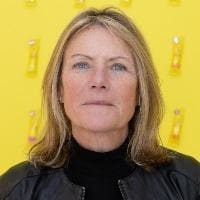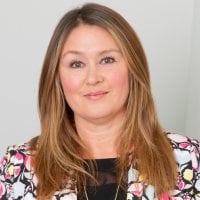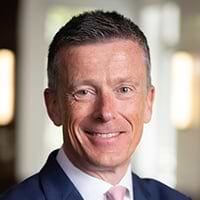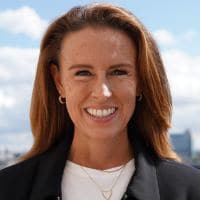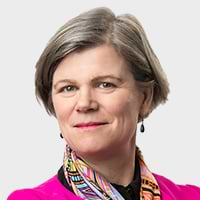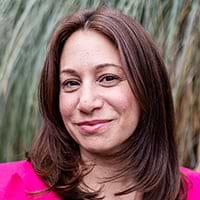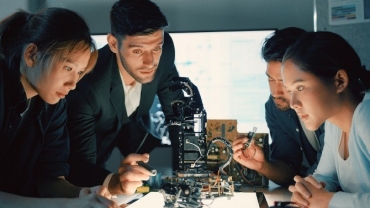
The 28th Annual UK CEO Survey reveals a momentous intent — and a pressing need — among UK business leaders to instigate material change to their business models.
To do so, they must navigate multiple time frames, dealing with intensifying challenges today while progressing bold investments in their workforce and in their scaling of emerging technologies to determine a future for their business that delivers long-term growth and lasting resilience.
A window of opportunity
The survey finds 98% of UK CEOs expect to make material changes to their business or operating model this year. Their motivations are both proactive and reactive.
It is clear CEOs are feeling the pressure of intensifying challenges. Some 34% believe their business won't be economically viable within 10 years on its current course — up from 21% last year. But the pursuit of growth and new opportunity is also a clear motivation.
The intent to reinvent
66%
of UK CEOs are developing new business capabilities or operating models in pursuit of growth
65%
are developing new business capabilities or operating models to create new offerings or address new markets (with the US the preferred market among those planning international investment)
32%
say their entire organisation must evolve
There appears to be a window of opportunity in which CEOs must instigate bold actions to capitalise upon opportunities and create a future-ready business.
In previous years, even as CEOs have faced significant challenges in the present day, they remained confident about their longer-term prospects, in the shape of their three-year outlook on revenue growth. However, since the pandemic, there has been a growing undertow dragging at the confidence of CEOs as the rate of change they experience has accelerated. Over the course of the past four cycles of the PwC CEO Survey, confidence in that three-year outlook has dropped from 71%, to 64%, to 61% and now sits at 57%.
This diminishing of longer-term confidence suggests CEOs are increasingly aware their future is more dependent than ever on taking bold actions today.
Marco Amitrano, Senior Partner, PwC UK, says: “This could be a defining moment for CEOs, where their situation is either a precipice or a launch pad. They can stay rooted to the spot, battling this year’s challenges, seeking incremental gains but remaining on the precipice edge, or they can take a leap forward to a different future.”
As such, there is a need to commit to a bolder long-term vision, and take significant, tangible steps towards it. But given the accelerating challenges CEOs face today, the path to that long-term vision must be shaped with agility in mind, and the ability to anticipate and adapt for multiple scenarios.
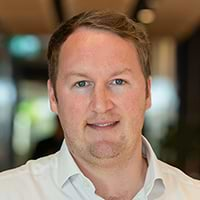
James Bradley
CEO, Churchill Group
“The world continually changes. Data allows greater understanding of evolving client needs.”

Jo-Jo Hubbard
CEO, Electron
“Countries are having to compete in a deglobalising economy.”
“Nothing should be off the table for CEOs contemplating bold, positive change. From how and where their business operates, to how it creates value, engages customers and employees, and uses emerging technology to embed agility and unlock opportunity. The required shift that many CEOs have identified, and its impact on skills and innovation, can create generational change for their business and the UK economy.”
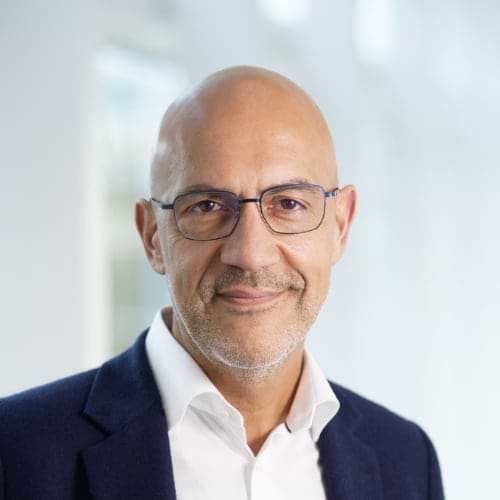
Marco Amitrano
Senior Partner, PwC UK
Workforce as a catalyst for growth
Significant change will only succeed if there is a workforce primed and ready to make it work, with the right structure, culture and skills in place. CEOs must align their business roadmap for change with a plan to develop, acquire and motivate the talent needed.
Phillippa O’Connor, Chief People Officer, PwC UK, says: “The interdependencies between business strategy and workforce strategy are greater than ever. CEOs need a multi-faceted plan to deliver skills and capabilities when and where the business strategy requires them. That will mean a combination of build, borrow, buy and ‘bot’, and organisations must balance those components to create a coherent path to change.”

Samantha Graham
CEO, Clean Sheet
“Employers need to think more creatively about recruitment.”
Creating a future-ready workforce
70%
are investing in retaining key talent
62%
are recruiting key skills and capabilities
52%
are upskilling their people
29%
will partner for key intellectual property / skills / capabilities
14%
will acquire for key intellectual property / skills / capabilities
Alongside a multi-faceted approach to workforce strategy, CEOs should look to data to analyse their organisation, assess the skills and capabilities in place and understand how people can be used in more sophisticated, flexible ways, as and when needs change.
“Implementing such an approach requires a cultural shift for many organisations,” adds O’Connor.
The role of the CEO as leader and figurehead, articulating and embodying that culture, is more important than ever. More than half of CEOs (54%) are personally sponsoring transformation projects. But they cannot lead the charge alone, given the twin pressures of increased magnitude and accelerated timelines. Nearly a third (31%) have appointed a dedicated transformation leader within their business, while the same proportion have created a dedicated transformation team.
But the CEO will remain the ultimate arbiter on business-defining decisions. A focus on connecting short-term actions with longer-term outcomes also means CEOs are far more likely to judge decisions based on outcome rather than process (80%), and there remains room for intuition in the boardroom, with 29% saying they rely on intuition at least half of the time when making decisions.
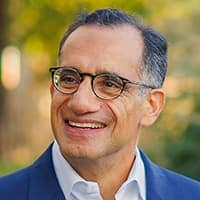
Shobi Khan
CEO, Canary Wharf Group
“Companies have decided they need the office to foster collaboration and culture.”
“CEOs and their teams have years of experience, forged in challenging times, and must draw upon their intuition and humanity to assess how much change their organisation can take, at what speed, and what impact that may have on culture and inclusion. It is essential CEOs establish an aiming point on each time horizon they are working to, that factors in the change they need, the change they can bear and the change they can realistically deliver. But they must also ensure their workforce strategy has the agility to respond as and when that aiming point needs to shift.”
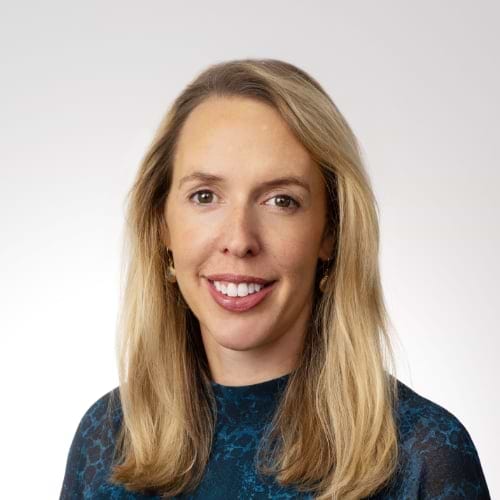
Phillippa O'Connor
Chief People Officer, PwC UK
A GenAI ‘reality check’ doesn’t dim appetite for technology
UK CEOs remain committed to technology investments and the role technology will play in creating change — 61% are investing in technologies such as Artificial Intelligence (AI) and Generative AI (GenAI), cloud, data and analytics to drive transformation.
However, to deliver truly transformative impact, CEOs will need to fully commit to a bold long-term vision. As with their workforce and wider planning, that vision may need to shift over time but CEOs should take aim with an ambitious vision and set about making their own future.
That will require CEOs backing their technology investments to succeed at speed and scale. A quarter of CEOs say they currently struggle to get emerging technology projects beyond proof of concept.
The greatest barrier to emerging technology adoption is perceived to be skills, followed by a lack of understanding of return on investment (ROI).
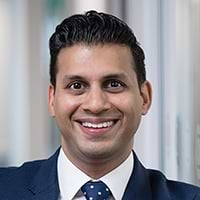
Hatul Shah
CEO, Sigma Pharmaceuticals Group
“Technology has transformed us from the ground up.”
Barriers to emerging technology adoption
47%
of UK CEOs cite skills gaps
44%
say understanding ROI
26%
cite high levels of risk with technology investments
24%
say stakeholder buy-in
23%
say choosing the right solution
17%
cite a lack of trust in emerging technology
This highlights the extent to which CEOs must tackle workforce and technology transformation as a connected challenge — developing the skills but also the culture and behaviour needed for tech-powered success. It also underscores the need for an approach spanning multiple time horizons given the time lag between investing in a technology and seeing widespread adoption and return on investment.
One technology yet to deliver on mighty short-term expectations is GenAI. Last year, the 27th Annual UK CEO Survey found 45% of CEOs expected GenAI to increase both revenue and profitability within 12 months. However, this year the majority say they've seen little to no change to profitability (79%) or revenue (78%) resulting from their use of GenAI.
Where GenAI has had the biggest immediate impact is on efficiency, as people find tasks they can now do more quickly. But such examples will not deliver the scale of change many anticipate, and most still expect in the longer-term. Similarly, opportunities have been identified, across every industry, to create value with GenAI — but these are not yet creating topline growth as organisations are building the skills, culture and capabilities required.
Umang Paw, Chief Technology Officer, PwC UK, says: “CEOs need to keep building the AI muscle within their organisation. There is an incredible engine there to drive growth, but it will require a range of real-world enablers to generate value at scale. This is a business project, a change management project, not just a technology project.”
CEOs have now recalibrated their expectations, with 36% saying they expect GenAI to increase profitability this year.
“CEOs have to be clear which use cases can deliver a return on investment and communicate to stakeholders when and where that ROI will be seen,” adds Paw. “That might be through productivity and quality gains this year, delivering ROI on the bottom line. In parallel they could be working to a two-to-three year timeline to deliver ROI at the topline through new business models, products and services.”
GenAI is just the latest technology to chart a course through hype and disillusionment, and an accompanying need to recalibrate expectations. Just as CEOs need to assess how much change their workforce can bear within what timescales, so they must set expectations around GenAI based on the speed at which critical enablers such as skills, behaviour, processes, governance, and strategy can change.
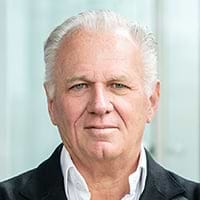
Mike Norris
CEO, Computacenter
“99% of the people that will use GenAI won’t really know they are using it.”

Paul Flaum
CEO, Bourne Leisure
“Letting tech do the heavy lifting on admin, frees our teams to enhance the experience for our guests”
“CEOs are right to keep faith with GenAI. But they will need to invest in their infrastructure, data strategy and workforce, as well as empowering their people to innovate. They must also proactively address issues of trust, technically and procedurally, through cyber security, education and governance.”
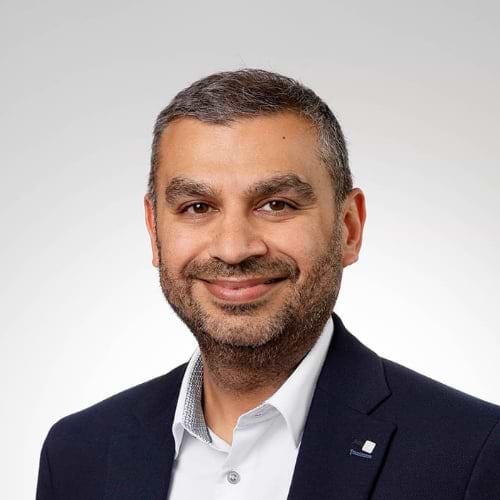
Umang Paw
Chief Technology Officer, PwC UK
A watershed moment for business and the economy
If CEOs can successfully take a transformative leap towards long-term growth and sustained resilience, the impact on the UK economy will be considerable.
When surveyed towards the end of 2024, UK CEOs expressed optimism about the UK economy, with 61% anticipating UK economic growth this year — up from 39% last year. However, there is no room for complacency, with warning signs across the economic landscape as 2025 gets under way.
The survey reveals the UK has already grown its standing on the world stage, according to global CEOs. It has risen from fourth place last year to second, behind only the US in terms of destinations where global CEOs plan to invest capital expenditure: 14% said the UK, compared to the US (30%), Germany (12%) and India (7%).
This provides a strong foundation as the new UK Government sets out its plans to drive economic growth, in the shape of its Industrial Strategy.
“The UK is in a relatively strong position and aligning the Government’s plans for growth with the conditions businesses need to deliver essential transformation will only strengthen that position,” says Carl Sizer, Chief Markets Officer, PwC UK. “The UK is already among the world-leaders in sectors such as financial services, healthcare, pharma, renewables, technology and media and entertainment. We have world-class universities and enviable social and political stability.”
“But across our CEO survey we are seeing this need for a bolder future vision,” adds Sizer. “It’s vital the private and public sectors collaborate to not only create a more favourable environment for business but to get behind opportunities to make the UK even more competitive on the world stage and even more attractive to global businesses and investors.”
A key component in creating that environment for businesses to thrive is regulation. The survey found regulatory change is the most common threat cited by CEOs (47%) who believe their business will not be viable within 10 years.
“The right regulation is good for business, good for investor confidence and good for trust in our markets,” says Sizer. “But it’s essential it keeps pace with change, in all areas, from AI to sustainability, and doesn’t hamper responsible growth and innovation.”
Another area where collaboration between the public and private sectors can make a material difference to long-term growth is developing a skills pipeline. A lack of skills was cited as a threat by 28% of CEOs who believe their business won’t be viable within 10 years.
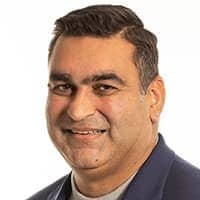
Nadeem Boghani
CEO, Splendid Hospitality
“Hopefully, the Government gives us the incentives to grow.”
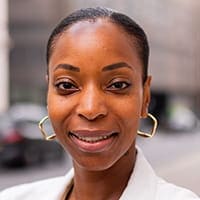
Natalie Campbell
CEO, Belu Water
“If you are more sustainable, there should be a different tax system.”

Alistair Phillips-Davies
CEO, SSE
“A yes or no answer to planning permission in 12 months is preferable to a rolling maybe.”
“The government can create powerful change through education planning, policy and provision, but the private sector can help inform that change and create complementary strategies, from closer ties to education to apprenticeships and upskilling. We all have a role to play in developing an environment that supports the transformation of businesses in ways that create world leading industries, greater regional growth and a more richly-skilled, economically-healthy, sustainable society.”
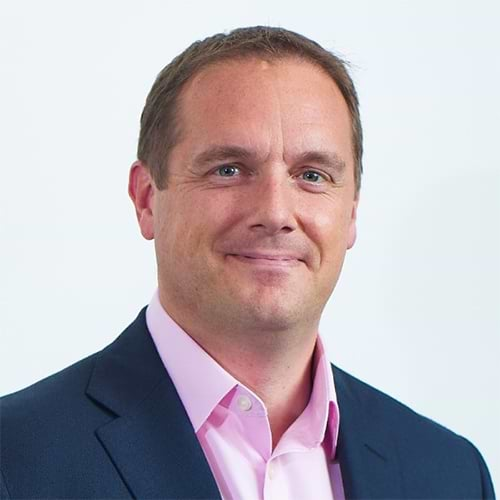
Carl Sizer
Chief Markets Officer, PwC UK
Contact us







